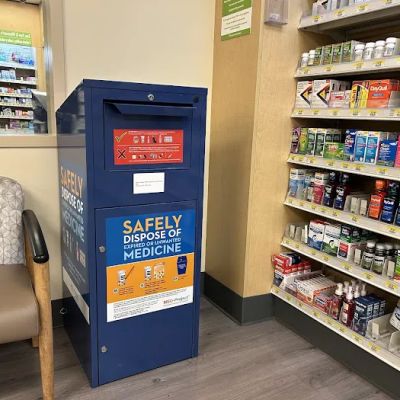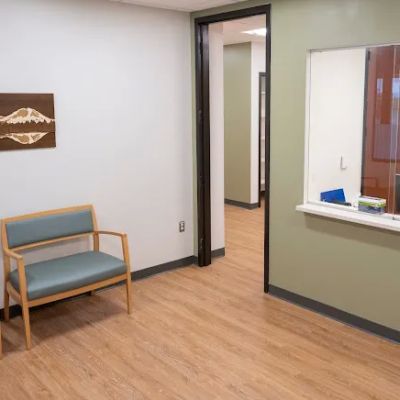Signs of Heart Disease You Should Never Ignore
- Understanding Heart Disease
- Chest Pain and Discomfort
- Shortness of Breath
- Fatigue and Dizziness
- Irregular Heartbeats
- Swelling in Legs and Ankles
- When to Seek Help
Understanding Heart Disease
Heart disease is one of the leading causes of death in the United States, affecting millions of people each year. Despite its prevalence, many individuals may not realize that they are at risk until symptoms become severe. Early detection is crucial, as identifying the signs of heart disease early on can significantly improve treatment outcomes and even save lives. However, many of the symptoms can be subtle or mistaken for other common ailments. It is essential to be aware of the signs of heart disease so you can seek timely medical attention and potentially prevent more serious health problems.

Chest Pain and Discomfort
One of the most well-known and alarming signs of heart disease is chest pain. This symptom can range from mild discomfort to sharp, crushing pain and is often associated with a heart attack or other cardiovascular issues. However, it’s important to note that not all chest pain is linked to heart disease. Other causes, such as acid reflux or anxiety, can also result in chest discomfort. Nonetheless, if you experience chest pain or pressure that lasts for more than a few minutes, or if the pain radiates to your arm, jaw, neck, or back, you should seek immediate medical attention.
Chest pain caused by heart disease is typically described as a tightness or pressure, and it may be accompanied by other symptoms like shortness of breath, dizziness, and nausea. These symptoms may indicate a serious condition such as a heart attack, angina, or coronary artery disease. It’s important not to dismiss any form of chest discomfort, especially if it comes with these additional symptoms.
Atlanta Heart Specialists
atlanta heart specialists
4375 Johns Creek Pkwy #350, Suwanee, GA 30024, USA

Shortness of Breath
Shortness of breath is another critical symptom that should not be ignored when it comes to heart disease. Difficulty breathing can occur even with minimal exertion, such as walking short distances or climbing stairs. This symptom may be a sign of heart failure, where the heart is unable to pump blood efficiently, leading to fluid buildup in the lungs. It can also be a warning sign of other conditions like arrhythmia or coronary artery disease.
If you notice that you are short of breath more frequently or if the symptom worsens, it is essential to talk to a healthcare provider. In many cases, shortness of breath can be a warning sign that something is wrong with your heart or circulatory system. Immediate evaluation can help identify the root cause and prevent further complications.
Fatigue and Dizziness
Unexplained fatigue and dizziness are common signs that something may be wrong with your heart. While occasional tiredness is normal, persistent fatigue that doesn’t improve with rest can be a sign of heart disease. When the heart is not pumping efficiently, it can lead to reduced oxygen levels in the blood, causing feelings of exhaustion and general weakness. Similarly, dizziness or lightheadedness can occur if the heart is unable to pump enough blood to the brain.
If you experience sudden or severe dizziness, fainting, or if your fatigue is affecting your daily life, it’s crucial to seek medical attention. These symptoms may be indicative of heart failure, arrhythmia, or other serious cardiovascular conditions. Your doctor will be able to perform tests to determine the underlying cause and recommend the appropriate treatment.
Irregular Heartbeats
Heart palpitations, or irregular heartbeats, can be a sign of arrhythmia or other heart-related issues. While occasional palpitations may not be cause for concern, frequent or persistent irregular heartbeats should never be ignored. An irregular heartbeat can cause symptoms like a fluttering sensation in the chest, skipped beats, or rapid heart rate. In some cases, it may lead to more severe issues like stroke or heart failure.
If you experience palpitations that last for several minutes or are accompanied by chest pain, dizziness, or shortness of breath, you should contact a healthcare provider immediately. Early diagnosis and treatment of arrhythmia can help prevent further complications and improve your overall heart health.
Swelling in Legs and Ankles
Swelling in the legs, ankles, or feet can be a sign of fluid buildup caused by heart failure. When the heart is not pumping effectively, fluid can accumulate in the lower extremities, leading to swelling. This symptom can also be associated with other health issues such as kidney disease or liver disease. However, when accompanied by other signs of heart disease, such as shortness of breath or fatigue, swelling may be indicative of a more serious problem.
If you notice swelling that doesn’t go away or gets worse over time, it’s important to consult a healthcare provider. Managing the underlying cause of the swelling can prevent it from becoming a more significant issue and improve your overall quality of life.
When to Seek Help
Heart disease can manifest in a variety of ways, and the symptoms are not always straightforward. If you experience any of the signs mentioned above, it’s important to seek medical help as soon as possible. Early detection is key to managing heart disease and preventing severe complications, such as heart attacks, stroke, or heart failure.
If you’re unsure about the severity of your symptoms, it’s always better to err on the side of caution. A visit to your healthcare provider can provide peace of mind and help ensure that any underlying heart problems are detected and treated early. For ongoing support and information about heart health, consider visiting HeartCare Hub, where you can access helpful resources and find the best services for managing your heart health.





















Deborah Heart and Lung Center
deborah heart and lung center
200 Trenton Rd, Browns Mills, NJ 08015, USA